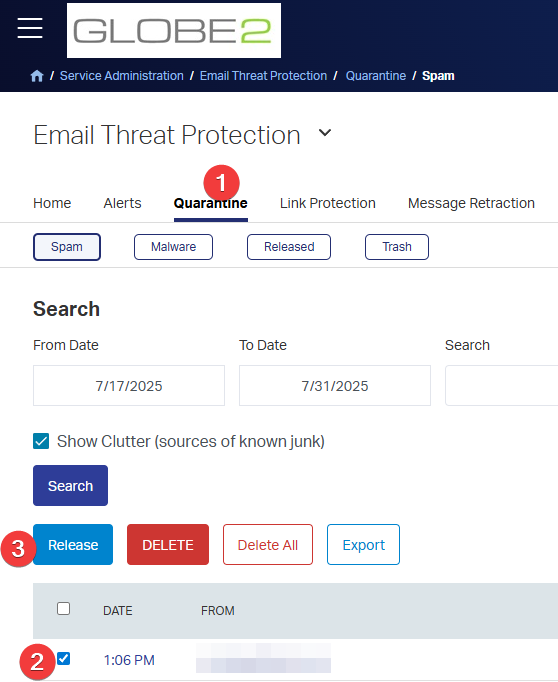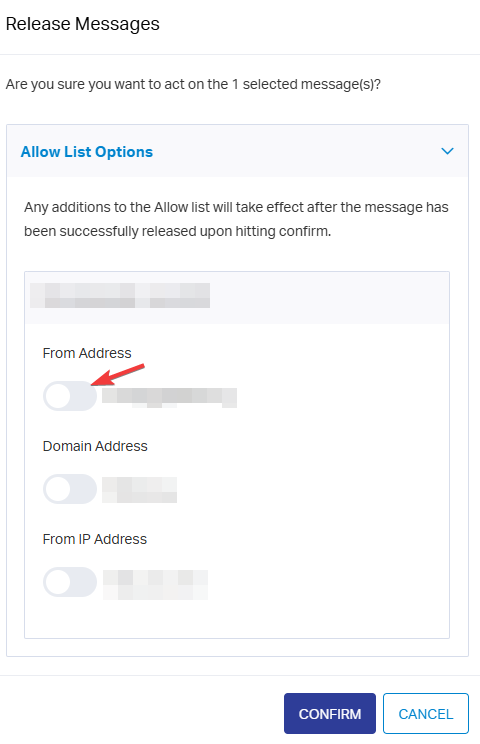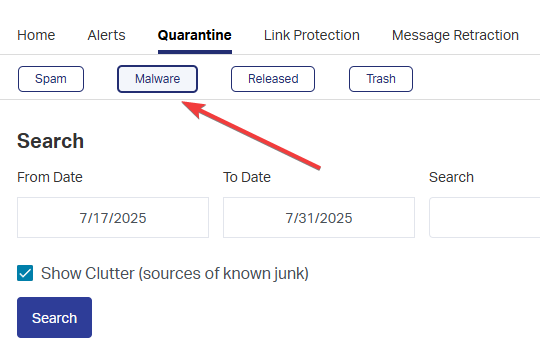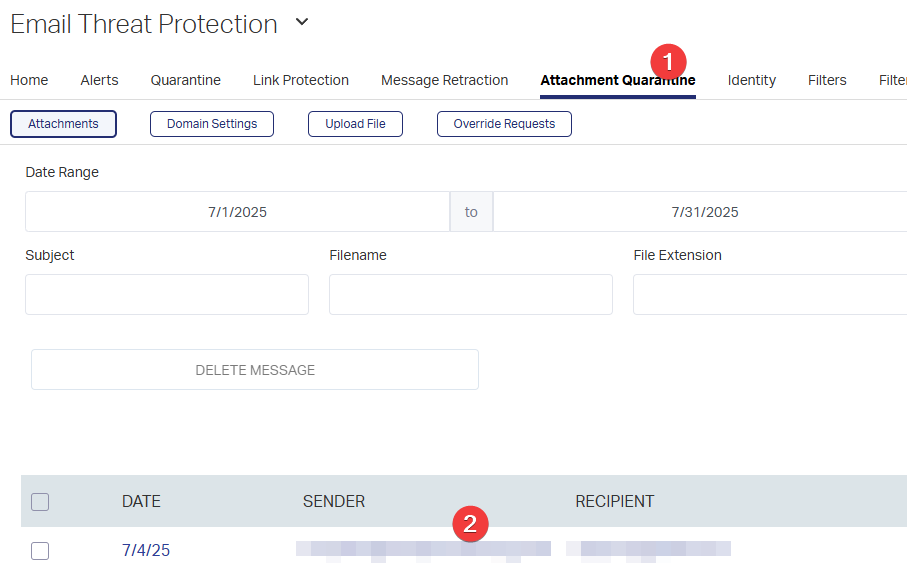Email Threat Protection
Your Guide to Email Threat Protection
Keeping Your Inbox Safer – Without Disrupting Your Work
OpenText Email Threat Protection is designed to help you work more securely by identifying and blocking harmful emails before they reach your inbox. From malicious links to dangerous attachments and unwanted spam, the system continuously scans and filters email threats—so you and your team can focus on business without worrying about cyberattacks.
This guide outlines key features of the service and how to manage them, especially if you’re expecting a specific email or want to whitelist a sender.
1. Link Checking (URL Protection)
What it is:
All links in incoming emails are automatically scanned. If a link is known to be malicious—or later found to be dangerous—it will be blocked when clicked.
Benefits:
- Prevents phishing and credential theft.
- Blocks malware downloads from compromised websites.
Impact on email use:
You may notice that links appear rewritten or redirect through a scanning service. This is expected and helps ensure the link is safe at the time of click, not just when the email arrives.
2. Quarantine Overview
Emails flagged as potentially harmful or unwanted are placed in quarantine rather than being delivered to your inbox. This includes:
- Spam
- Phishing attempts
- Malware or suspicious attachments
You have two options for managing quarantined emails:
A. Daily Quarantine Summary
Each day, you’ll receive an email summary listing all quarantined items. From there, you can release or report messages directly.
B. Manual Login to the Portal
If you're waiting for a time-sensitive email (like a login code or 2FA prompt), log in to the quarantine portal directly:
You’ll need your email and password (this may be the same as your email password). If you’ve never logged in before and unsure of your password, there’s a “Forgot password” option to set one up.
3. Releasing & Whitelisting Emails
Releasing an Email
To release an email from quarantine:
- Click “Release” in the daily summary, or log in to the portal.
- Find the email and select “Release”.
- The email will be sent to your inbox.
In the portal, first click on the hamburger icon next to the Globe2 logo and select Email Threat Protection. Then:
- Click on Quarantine
- Check the checkbox against the email you want to release
- Click on Release
Whitelisting a Sender
If you want to ensure future emails from a sender are not quarantined:
- Individual email: You can whitelist the exact sender (e.g.,
john@example.com). This is usually safe. - Entire domain: Whitelisting an entire domain (e.g.,
@example.com) is more risky and disabled by default to prevent abuse. If you feel it's necessary, contact us for support.
To whitelist an email, when you click on Release, click on Allowed List Options. This will give you the option to whitelist the email address or domain (toggle the slider against each record you want to whitelist).
Note that Whitelisting is subject to approval and may not take effect immediately.
4. Malware and Attachment Quarantine
Attachments are scanned for known malware and risky formats. In some cases, attachments are quarantined even if the rest of the email seems clean.
The Quarantine shows those that are blocked for Spam or Malware (see the buttons above the search bar).
To release an attachment from Quarantine, first head to the Attachment Quarantine section, then click on the related message:
Once in the message click on the Actions button and select Release.
Need Help?
We’re here to support you. Whether you're waiting for a specific email, want to whitelist a sender, or need help understanding why something was blocked—just get in touch.
Email support:: support@globe2.net
Call us: 03333 446 441





No comments to display
No comments to display